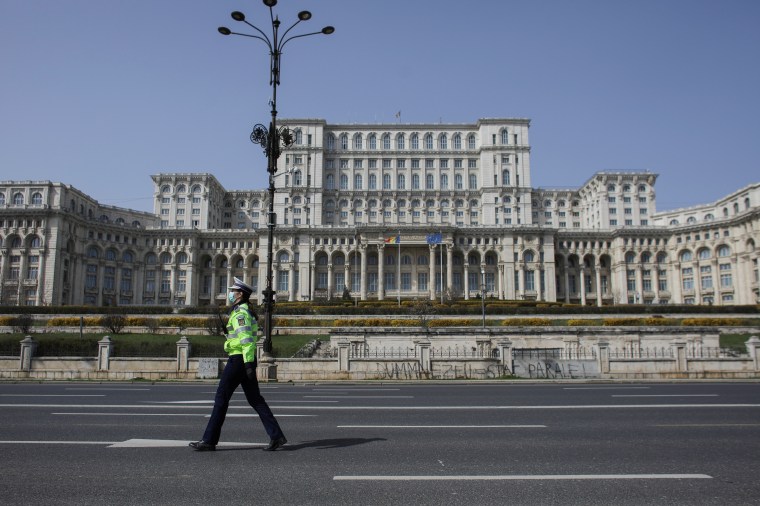Berlin, June 3, 2021 — Romanian authorities should stop summoning journalists for questioning over their work, and local officials should not pursue criminal cases against members of the press, the Committee to Protect Journalists said today.
Since May 20, prosecutors at the Directorate for Investigating Organized Crime and Terrorism, a judiciary agency tasked with investigating and prosecuting organized crime and terrorism-related offenses, have questioned four employees of the daily newspaper Libertatea and the weekly magazine Newsweek Romania over their outlets’ coverage of alleged corruption in public works contracting, according to reports by both outlets.
On May 20, prosecutors in Bucharest questioned Libertatea editorial coordinator Cătălin Tolontan and reporter MihaI Toma, and the following day questioned Newsweek Romania reporter Mircea Marian and office manager Andrei Sabin Orcan, according to those reports as well as Libertatea editor-in-chief Dan Duca and Newsweek Romania editor-in-chief Sabin Orcan, Andrei Sabin’s father, who both communicated with CPJ via email.
Duca and Orcan told CPJ that prosecutors interrogated the employees in relation to a criminal complaint filed by Daniel Băluță, the mayor of the Bucharest’s Section 4, who oversaw the public contract that the outlets alleged was corrupt.
According to Duca and Orcan, Băluță denied the allegations and accused the four of establishing an “organized criminal group” to blackmail him into changing that contracting decision in favor of a company that the journalist supported, with the promise of “financial gain.” Orcan denied that the journalists had any connection to that company.
According to the Romanian criminal code, blackmail and establishing an organized crime group are each punishable by up to five years in prison.
“It is essential for journalists to be able to freely report on the use of public funds without fear of being harassed by law enforcement agencies,” said Gulnoza Said, CPJ’s Europe and Central Asia program coordinator, in New York. “Romanian authorities should drop their investigation into employees of Libertatea and Newsweek Romania, and public officials should withstand scrutiny from the press rather than harass journalists for doing their jobs.”
Orcan told CPJ that the authorities’ summons related to an article Newsweek Romania published on March 15, which Libertatea summarized and quoted on March 16, alleging that the municipality was trying to fix a contract for a specific company that Băluță favored. The Newsweek Romania article was published by “Alexandru Pop,” a pseudonym.
Orcan told CPJ that Newsweek Romania stood by the reporting, which was based on public records. He called the mayor’s accusations “totally absurd” and “a form of intimidation against any investigative reporting about his administration.” Duca told CPJ that the mayor´s accusations constituted “a serious form of intimidation.”
Orcan said that his colleagues were accompanied by the magazine’s lawyers, and prosecutors questioned them in the presence of Băluță’s lawyer.
Prosecutors asked the Newsweek Romania employees about who had authored the article, why the newspaper published it, and the identities of the reporter’s sources, Orcan said. He added that his colleagues told the prosecutors that they had nothing to do with the decision to publish the article, and said he believed authorities had accidentally summoned his son, who has only administrative tasks in the office.
“My conclusion is that they have mixed up my name with my son’s name. So right now, I am expecting to be summoned as well,” Orcan told CPJ.
After the publication of this article, the Directorate for Investigating Organized Crime and Terrorism emailed a statement to CPJ saying that the journalists were questioned “only as witnesses and not being accused of any criminal offence,” and said they were not questioned about their sources.
The statement said that prosecutors dropped the investigation into the organized crime allegation on June 7, and had referred the blackmail allegation to the Bucharest Fourth District prosecutor’s office.
CPJ emailed Daniel Băluță’s office for comment, but did not receive any reply.
[Editors’ note: This article has been updated to include the Directorate for Investigating Organized Crime and Terrorism’s response to CPJ.]
